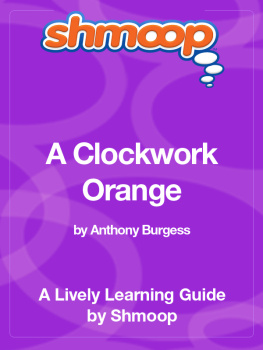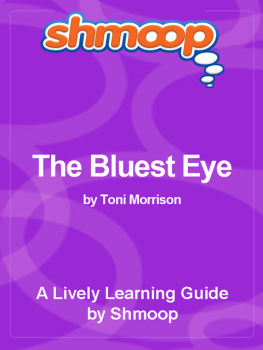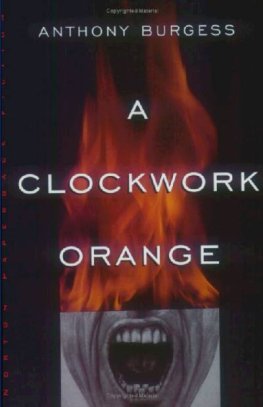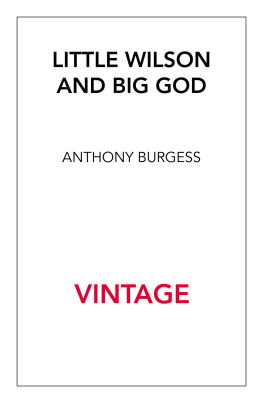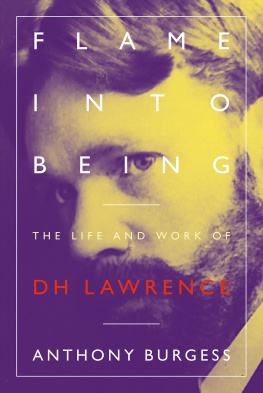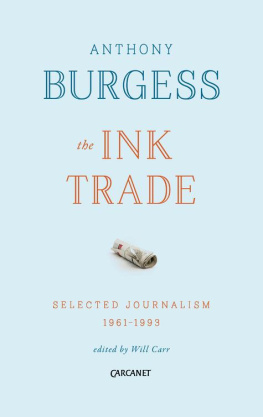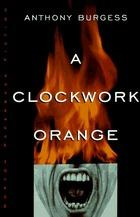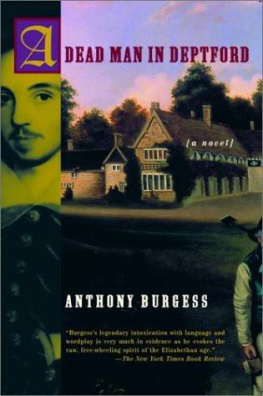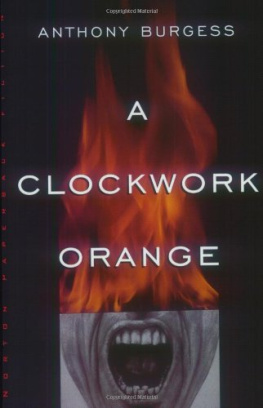Shmoop. - A Clockwork Orange by Anthony Burgess
Here you can read online Shmoop. - A Clockwork Orange by Anthony Burgess full text of the book (entire story) in english for free. Download pdf and epub, get meaning, cover and reviews about this ebook. City: Sunnyvale;Calif, year: 2010, publisher: Shmoop University, genre: Humor. Description of the work, (preface) as well as reviews are available. Best literature library LitArk.com created for fans of good reading and offers a wide selection of genres:
Romance novel
Science fiction
Adventure
Detective
Science
History
Home and family
Prose
Art
Politics
Computer
Non-fiction
Religion
Business
Children
Humor
Choose a favorite category and find really read worthwhile books. Enjoy immersion in the world of imagination, feel the emotions of the characters or learn something new for yourself, make an fascinating discovery.
- Book:A Clockwork Orange by Anthony Burgess
- Author:
- Publisher:Shmoop University
- Genre:
- Year:2010
- City:Sunnyvale;Calif
- Rating:4 / 5
- Favourites:Add to favourites
- Your mark:
- 80
- 1
- 2
- 3
- 4
- 5
A Clockwork Orange by Anthony Burgess: summary, description and annotation
We offer to read an annotation, description, summary or preface (depends on what the author of the book "A Clockwork Orange by Anthony Burgess" wrote himself). If you haven't found the necessary information about the book — write in the comments, we will try to find it.
A Clockwork Orange by Anthony Burgess — read online for free the complete book (whole text) full work
Below is the text of the book, divided by pages. System saving the place of the last page read, allows you to conveniently read the book "A Clockwork Orange by Anthony Burgess" online for free, without having to search again every time where you left off. Put a bookmark, and you can go to the page where you finished reading at any time.
Font size:
Interval:
Bookmark:

Unfortunately, Stanley Kubrick's movie bearing the same name was modeled after the slimmer American book release -- that is, the one without the final chapter. To Burgess's dismay, Kubrick's movie memorialized an incomplete version of his work. In any case, it turns out that Burgess actually didn't like his novel A Clockwork Orange, anyway. (Burgess liked it as much as Beethoven liked his Minuet in G, or Rachmaninoff his Prelude in C Sharp Minor, written when Rachmaninoff was a mere boy.)
That would be the easy interpretation. In the United States, and for 24 years, this 21st chapter was left out of all published versions of A Clockwork Orange. In fact, Americans were so content with the extremely open-ended ending provided by the 20th chapter that no one bothered to look on eBay for a British edition of the work. (OK, so eBay wasn't around in the 80s, but hey, same idea.) What's even more interesting is that Stanley Kubrick's famous (and forever memorialized) film adaptation of the book was modeled after the twenty-chapter version, so why is the 21st chapter even necessary?
Burgess hints at the answer to this, suggesting that politics or different regional aesthetics had something to do with leaving out the 21st chapter. Perhaps it's because the 20th chapter, with evil prancing all over the page, is sexier. Perhaps optimism as embodied by the 21st chapter is at odds with the rest of the work. We have millions of theories, as do Burgess and the publisher responsible for nixing the 21st chapter in the American edition, but at the end of the day, you'll have to decide for yourself whether you prefer it one way or the other. Just be ready to justify your opinion.
Font size:
Interval:
Bookmark:
Similar books «A Clockwork Orange by Anthony Burgess»
Look at similar books to A Clockwork Orange by Anthony Burgess. We have selected literature similar in name and meaning in the hope of providing readers with more options to find new, interesting, not yet read works.
Discussion, reviews of the book A Clockwork Orange by Anthony Burgess and just readers' own opinions. Leave your comments, write what you think about the work, its meaning or the main characters. Specify what exactly you liked and what you didn't like, and why you think so.

